Publications
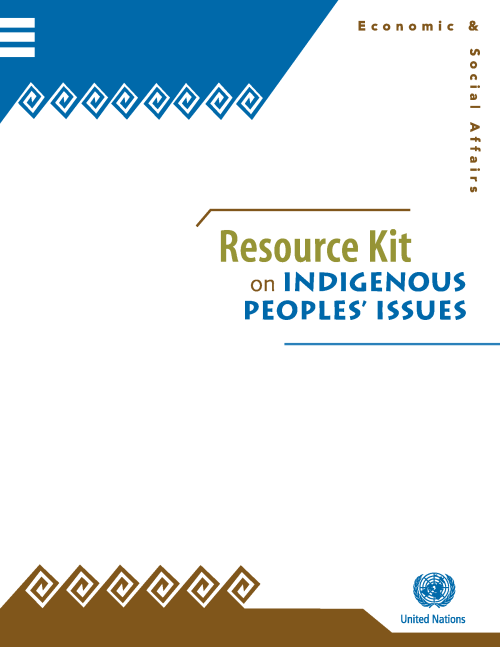
SPFII, in cooperation with ILO, UNICEF, UNDP, UNFPA and SCBD has published the Resource Kit on Indigenous Peoples Issues. The Kit is aimed UN Country Teams (UNCTs), and other development agents, providing them with guidance as to how to engage indigenous peoples and include their perspectives in development processes.
The world continues to make advances towards the Millennium Development Goals (MDGs), despite the global economic downturn, but the rate of improvement remains too slow and countries must step up their efforts if the MDGs are to be achieved by their target date of 2015, a new United Nations report says. The annual assessment report, released today by Secretary-General Ban Ki-moon, shows that the world has made huge strides in reducing extreme poverty...
The world needs to reassess the notion of poverty and the means for its eradication, according to a new report published by DESA’s Division for Social Policy and Development. The Report on the World Social Situation 2010 entitled “Rethinking Poverty” was critical of the current way that the international community identified and addressed poverty. The Report argued that “although the current monetary poverty-line approach...
The United Nations Statistical Yearbook is an annual compilation of a wide range of international economic, social and environmental statistics for over 200 countries and areas of the world, compiled from sources including UN agencies and other international, national and specialized organizations. The fifty-second issue contains data available to the Statistics Division as of June 2008 and presents them in 68 tables on topics including: agriculture; balance of payments; communication; development assistance; education; energy; environment; finance and gender.
There are over 370 million indigenous people in some 90 countries, living in all regions of the world. The situation of indigenous peoples in many parts of the world is critical today. Poverty rates are significantly higher among indigenous peoples compared to other groups. While they constitute 5 per cent of the world's population, they are 15 per cent of the world's poor. Most indicators of well-being show that indigenous peoples suffer disproportinately.
The Millennium Development Goals report presents a yearly assessment of global progress towards achieving the MDGs. It is prepared by the Statistics Division at DESA on the basis of input provided by the members of the Inter-agency and Expert Group on MDG Indicators. Less than six years away from the 2015 deadline to achieve the MDGs, this report warns that despite many successes, overall progress has been...
This report presents an assessment of progress, based on data available as of June 2008 on all official Millennium Development Goals (MDG) indicators, including the new ones introduced. The aggregate figures in the report provide an overall assessment of regional progress under the eight goals and are a convenient way to track advances over time.
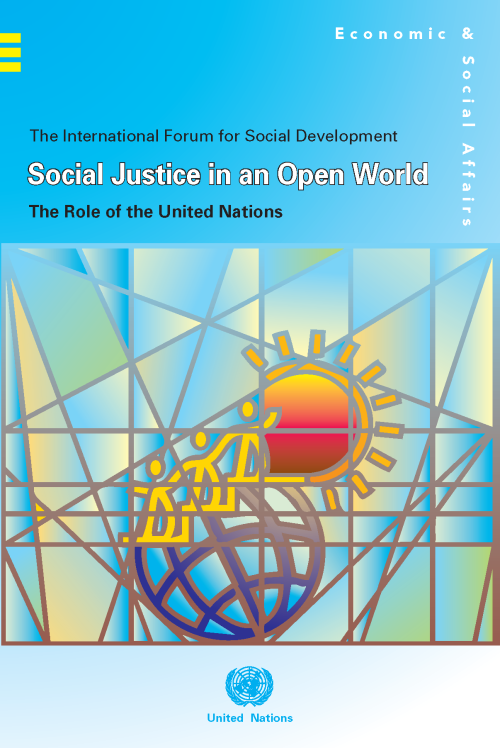
This publication provides an overview of the discussions that took place during the International Forum for Social Development, a three-year project undertaken by DESA for the purpose of promoting international cooperation for social development and supporting developing countries and social groups not benefiting from globalization. The outcomes of the meetings that took place during the Forum were also presented orally at the annual sessions of the Commission for Social Development.
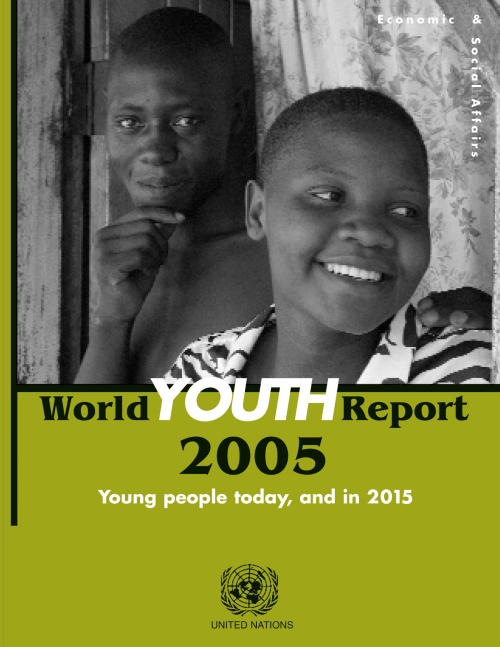
The year 2005 marks ten years since the General Assembly adopted the World Programme of Action for Youth in 1995. This report, an official report to the General Assembly, called for a renewed committment to the goals of the World Programme of Action, since over 200 million youth were living in poverty, 130 million youth were illiterate, 88 million were unemployed and 10 million young people were living with HIV/AIDS.
In the World Youth Report 2005, it is argued that too often, youth policy is driven by negative stereotypes of young people, including delinquency, drug abuse and violence. What seems to be forgotten is that young people are a positive force for development, peace,…
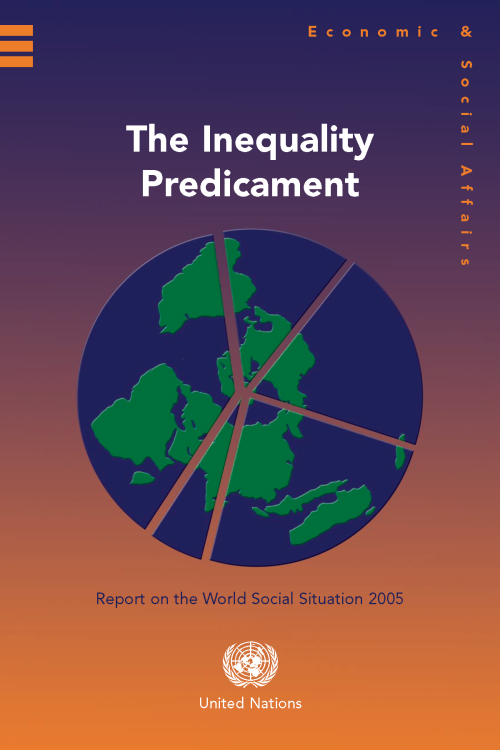
The 2005 Report on the World Social Situation: The Inequality Predicament was launched on August 25. The Report sounds alarm over persistent and deepening inequality worldwide, focusing on the chasm between the formal and informal economies, the widening gap between skilled and unskilled workers, the growing disparities in health, education and opportunities for social, economic and political participation.
The Report has been introduced by Mr. Jose Antonio Ocampo, Under-Secretary-General and Mr. Johan Schölvinck, Director, Division for Social Policy and Development, DESA on Thursday August 25, 2005.
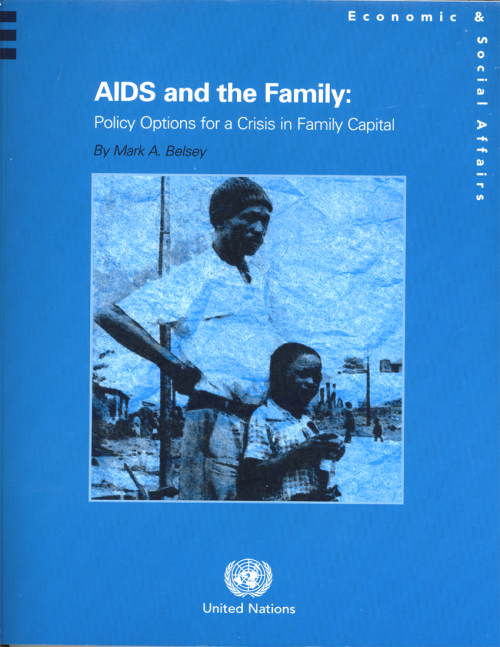
AIDS and the Family began five years ago, as a background document for the United Nations General Assembly discussions on the occasion of the Tenth Anniversary of the International Year of the Family. Intended as short overview in support of the activities of United Nations bodies and non-governmental organizations (NGOs), it was gradually expanded to include a review and analysis of the rapidly growing body of information, knowledge and international experience surrounding the HIV/AIDS epidemic.
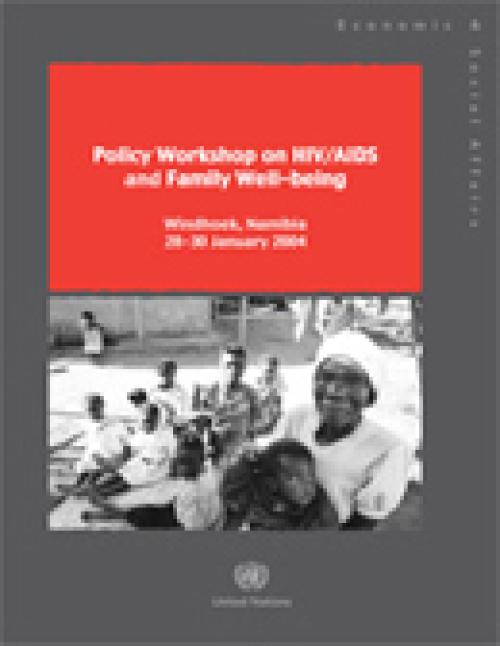
The Policy Workshop was organized by the United Nations Department of Economic and Social Affairs and hosted by the Government of Namibia, National Planning Commission Secretariat. It was held at Windhoek, Namibia. The purpose of the workshop was to bring together representatives of governments and non-governmental organizations as well as academic experts and practitioners from various countries in southern Africa to discuss the impact of HIV/AIDS on families in the region.
 Welcome to the United Nations
Welcome to the United Nations